Author: Hi, I am Dr. Rai Lawson, and I have a passion for all things digital and delivering information that could benefit your business. I am a published United States Press Association member and a Certified Marketing Professional through Meta. If there are any questions or topics you would like me to cover, feel free to email me at contact@digitalworx.io
Are Websites Still Relevant in 2023, and How to gain Traffic to your Site?
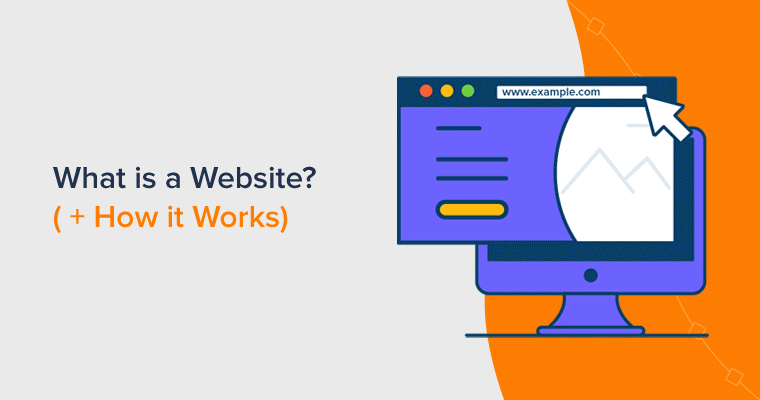
Photo by SiteSaga
Websites are still relevant in marketing in 2023 and beyond. A website is a valuable tool for businesses of all sizes and industries because it provides a central location for customers to learn more about your products or services, contact you, and make purchases.
A website allows you to reach a wider audience, as anyone with an internet connection can access your site. It also provides a professional online presence, which can help establish credibility and trust with potential customers.
In addition to serving as a central hub for information about your business, a website can also be a helpful marketing tool. You can showcase your products or services, share industry-specific news or content, and provide information about promotions or sales. You can also use your website to gather customer data and track website analytics, which can help you better understand your target audience and tailor your marketing efforts.
Overall, a website is essential to any marketing strategy and will likely remain relevant.
5 Top Website builders for your business:
Many software and app options for building a website range from simple drag-and-drop builders to more advanced content management systems (CMS). Some popular options include:
5. WordPress:
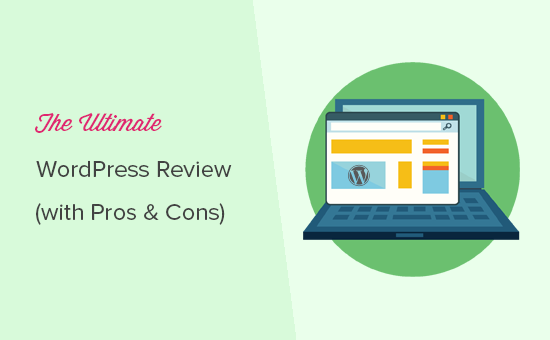
Photo by WPBeginner
Pros:
- WordPress is a widely-used CMS that allows you to create and manage a website easily. It offers a range of customizable templates and plugins to help you add functionality to your site.
Cons:
While WordPress is a popular and widely-used website builder, there are a few potential drawbacks to consider:
- Learning curve: While WordPress is generally user-friendly, a learning curve involves using the platform. It can take some time to become familiar with all the available features and options.
- Limited design options: While WordPress offers a range of design options, it may not be as flexible as some other website builders when customizing your website's look and feel.
- Security risks: As an open-source platform, WordPress is vulnerable to security risks. It's essential to keep your WordPress site and plugins up to date to minimize the risk of hacking and other security breaches.
Overall, while WordPress is a powerful and popular website builder, it's essential to carefully consider whether it's the right fit for your needs and goals. It may be a good fit for a flexible and customizable platform. Still, there may be better choices for those who are less technically savvy or looking for more comprehensive technical support.
4. Wix:

Photo By Yaguara
Pros:
- Wix is a famous website builder offering various templates and design options. It includes features like drag-and-drop design, SEO tools, and e-commerce capabilities.
Cons:
Wix is a famous website builder offering various templates and design options. While it has many benefits, there are a few potential drawbacks to consider:
- Limited customization: While Wix offers a range of templates and design options, it may be more limited in terms of customization compared to some other website builders. Once you choose a template, it can take time to make significant design changes.
- Poor SEO performance: Some users have reported that websites built with Wix may need better SEO performance, making it more difficult for your website to rank well in search engine results.
- Limited e-commerce capabilities: While Wix offers e-commerce capabilities, they may be more limited than other platforms. For example, Wix does not provide inventory management or abandoned cart recovery.
Overall, while Wix is a popular and user-friendly website builder, it's essential to carefully consider whether it's the right fit for your needs and goals. It may be a good fit for an easy-to-use platform with various design options. Still, it may be a better choice for those who need more advanced e-commerce capabilities or are looking to prioritize SEO performance.
3. Squarespace:
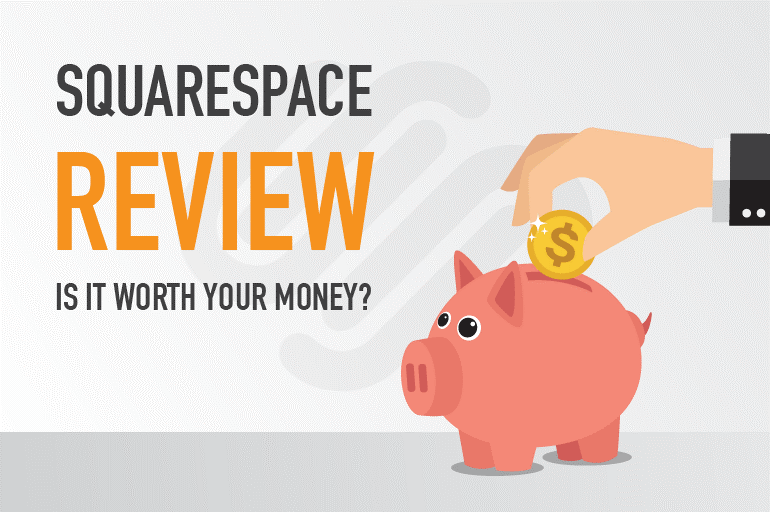
Pros:
- Squarespace is a website builder offering various customizable templates and design options. It also includes features like SEO tools, e-commerce capabilities, and integrations with social media platforms.
- Squarespace is a website builder offering various templates and design options. While it has many benefits, there are a few potential drawbacks to consider:
Cons:
- Limited e-commerce capabilities: While Squarespace offers e-commerce capabilities, they may be more limited than other platforms. For example, Squarespace does not provide inventory management or abandoned cart recovery.
- Difficulty switching platforms: Once you build a website with Squarespace, it can be challenging to change to a different platform without starting from scratch..
- Cost: While Squarespace offers a range of pricing options, the price can add up, especially if you need to add additional features or functionality.
While Squarespace is a popular and user-friendly website builder, it's essential to carefully consider whether it's the right fit for your needs and goals. It may be a good fit for those looking for an easy-to-use platform with a range of design options, but there may be better choices for those who need more advanced e-commerce capabilities or are looking to prioritize SEO performance.
2. Weebly:
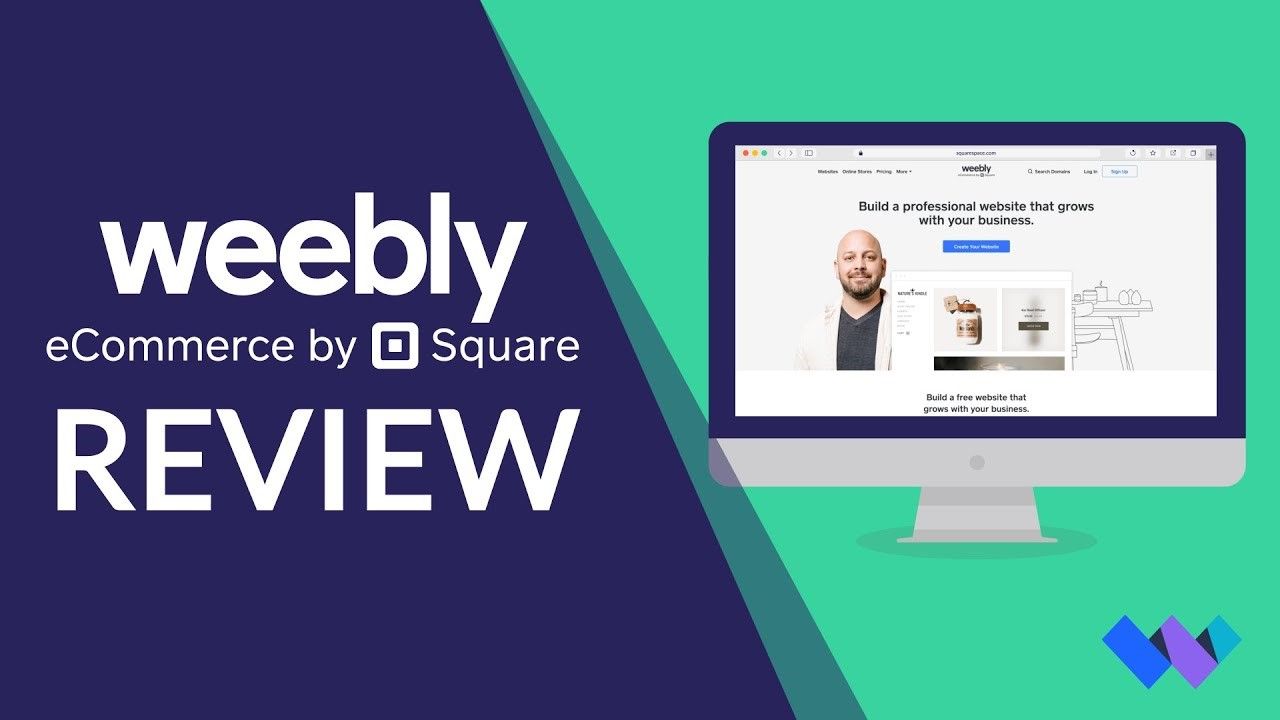
Photo by websitebuilderexpert
Pros:
- Weebly is a website builder offering various templates and design options. It includes features like drag-and-drop design, SEO tools, and e-commerce capabilities.
Weebly is a website builder offering various templates and design options. While it has many benefits, there are a few potential drawbacks to consider:
Cons:
- Poor SEO performance: Some users have reported that websites built with Weebly may need better SEO performance, making it more difficult for your website to rank well in search engine results.
- Limited e-commerce capabilities: While Weebly offers e-commerce capabilities, they may be more limited than other platforms. For example, Weebly does not provide inventory management or abandoned cart recovery.
- Difficulty switching platforms: Once you build a website with Weebly, switching to a different platform without starting from scratch can take time and effort.
- While Weebly is a popular and user-friendly website builder, it's essential to carefully consider whether it's the right fit for your needs and goals. It may be a good fit for those looking for an easy-to-use platform with a range of design options, but there may be better choices for those who need more advanced e-commerce capabilities or are looking to prioritize SEO performance.
1. DigitalWorx:
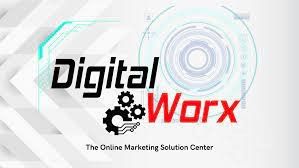
Photo By Digitalworx
Digitalworx includes a website builder that offers a range of features and tools to help you create and manage a professional-looking website. Some potential benefits of using the Digitalworx platform to build a website include the following:
- Ease of use: Digitalworx's website builder is designed to be user-friendly and easy to use, even for those with little technical expertise. It offers a range of templates, design options, and drag-and-drop design features.
- Customization options: Digitalworx offers a range of customization options, including adding custom code and CSS, which can help you create a unique and professional-looking website.
- Mobile-friendly design: Digitalworx's website builder is designed to be mobile-friendly, meaning that your website is optimized for viewing on mobile devices.
- E-commerce capabilities: Digitalworx offers e-commerce capabilities, including the ability to create and manage an online store, process payments, and manage inventory.
- SEO tools: DigitalworxDuda includes a range of SEO tools to help you optimize your website for search engines and improve your search rankings.
- Integrations: Digitalworx offers integrations with various third-party tools and services, including social media platforms, email marketing tools, and analytics platforms.
- Customer support: Digitalworx offers customer support through its website, email, and phone.
Overall, Digitalworx is a famous website builder and our choice for the recommendation that offers a range of features and tools to help you create and manage a professional-looking website. It may be a good fit for an easy-to-use platform with various customization options and e-commerce capabilities.
There are many ways to gain website traffic in 2023 and beyond. Here are a few strategies you can consider:
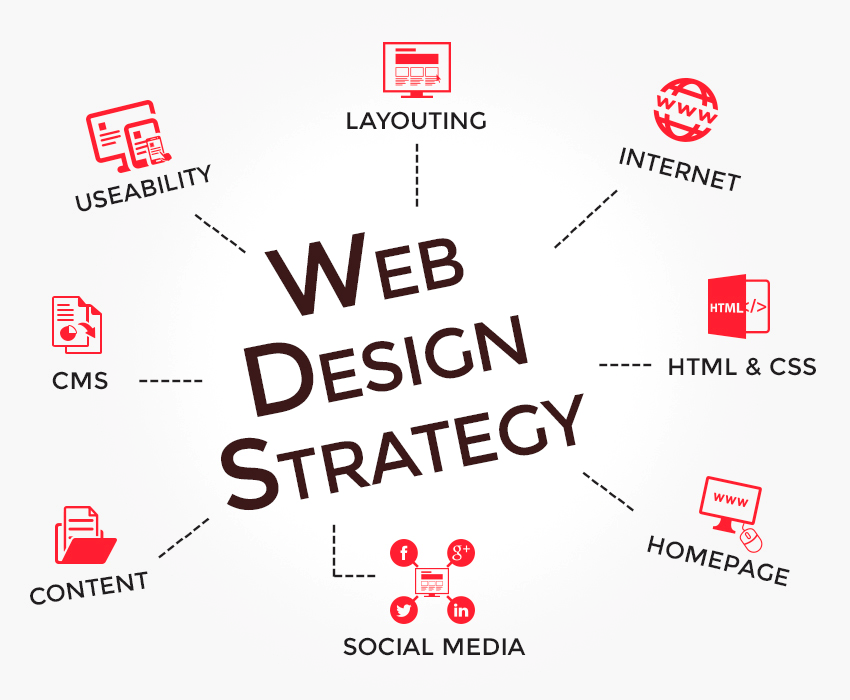
Photo By Pepper Content
- Search engine optimization (SEO): Optimizing your website for relevant keywords and phrases can improve your search engine rankings and drive more organic traffic, including optimizing your website's content, titles, descriptions, and backlinks.
- Paid advertising: You can use paid advertising platforms like Google AdWords or Facebook Ads to drive targeted traffic to your website. These platforms allow you to set a budget and target specific demographics or interests.
- Social media marketing: By regularly posting engaging content on social media platforms and promoting your website, you can drive traffic to your site and build your online presence.
- Email marketing: By building an email list and sending targeted campaigns to your subscribers, you can drive traffic to your website and nurture leads.
- Content marketing: By creating and sharing high-quality, informative content, you can attract visitors to your website and establish yourself as a thought leader in your industry.
- Influencer marketing: By partnering with influencers or industry experts, you can tap into their large following and drive traffic to your website.
- Referral traffic: By building relationships with other businesses or websites and promoting each other's content, you can drive referral traffic to your site.
It's important to note that it takes time and effort to drive traffic to a website, and it's often a combination of several strategies that will be most effective. It's also important to regularly review and optimize your efforts to ensure you get the best investment return.
Search Engine Optimization:
Search engine optimization (SEO) is the process of improving the visibility of a website or web page in search engines via organic or "natural" results. Search engine optimization is a long-term strategy for increasing traffic to your site. For example, if you open a business that sells home decor, your SEO would be focused on attracting customers who are looking for home décor online and thus creating an online presence on websites like Houzz or Pinterest. After they've landed on your site, you can then lead them through customer journey stages that allow them to convert into customers who are ready to make purchases from you.
To increase visibility in search engines:
- Update content regularly
- Focus on keywords and phrases related to your industry
- Link pages together
Social Media Marketing:
Social media marketing is a great way to get your message out there, whether it’s your latest product launch or a new service you offer. It’s also a great place to interact with your customers and receive feedback from them.
Social media is also an excellent tool for driving sales. Consumers are typically on social media during their leisure time, so it makes sense that they would be more receptive to ads while they are enjoying themselves online. You can create ads that appear on users' newsfeeds and target those who might be interested in what you have to offer based on the pages they've liked or visited before seeing your ad.
Content Marketing:
Content marketing is the use of content to attract, acquire, and engage a clearly defined and understood target audience with the objective of driving profitable customer action.
It's a way to build trust and authority with your audience by providing them relevant information they would otherwise have to search for or pay for. Think of it like this: if you're out of town on vacation, your friend will never let you pay for dinner because he knows that you always bring dessert when invited over for dinner. Content marketing works in much the same way--you'll give away some valuable stuff (the dessert) in exchange for access to someone else's valuable stuff (the meal).
Website Optimization
Website Optimization is the process of improving the visibility of a website or a web page in search engines. The most common procedure includes updating content, optimizing titles, tags and descriptions for relevant keywords, checking for broken links and fixing these where necessary, removing unnecessary files from your site (like images or scripts) and making sure it doesn't take too long to load.
The aim of all this is to help Google understand what the page is about so that it can be shown higher up in search results when people are searching for similar things.
Pay-Per-Click Marketing:
Pay-per-click marketing, or PPC, is a way to pay for your ads in order to appear at the top of search engine results. These ads also show up on social media sites like Facebook and Twitter.
PPC has three main benefits:
- It's easy to set up and measure.
- You can target specific customers who are most likely to buy your product or service by their interests, location, and other factors such as age or gender (this is called "demographic targeting"). This helps you focus on reaching people who have already shown interest in what you're selling without wasting money on clicks from those who won't be interested anyway—which can be very useful if your budget isn't large enough for conventional advertising methods such as TV commercials or print ads in newspapers or magazines (known collectively as "mass media").
- $10 per click? Yes please!
Marketing Analytics:
Analytics is the process of collecting, storing, analyzing, and reporting data about your marketing campaigns. It's used to make better decisions about campaign performance, improve the performance of future campaigns and gain insight into what works best for your business.
Analytics helps you measure how effective your digital marketing is by providing data on things like:
- What content resonates with prospects?
- How much traffic a page or ad generates over time (and where they come from).
Conclusion
If you’re looking to learn more about digital marketing and how it can benefit your business, we encourage you to explore our website, visit us on Facebook or Schedule a Call with us. We provide a wealth of information on all aspects of digital marketing so that you can get started today!
Website: www.Digitalworx.io
Facebook: https://www.facebook.com/Digitalworx.io
Author:Hi I am Rai Lawson, and I have a passion for all things digital as well as delivering information that could benefit your business. I am a publish member of the United States Press Association as well a Certified Marketing Professional through Meta.
If there are any questions or topics you would like me to cover feel free to email me at contact@digitalworx.io







